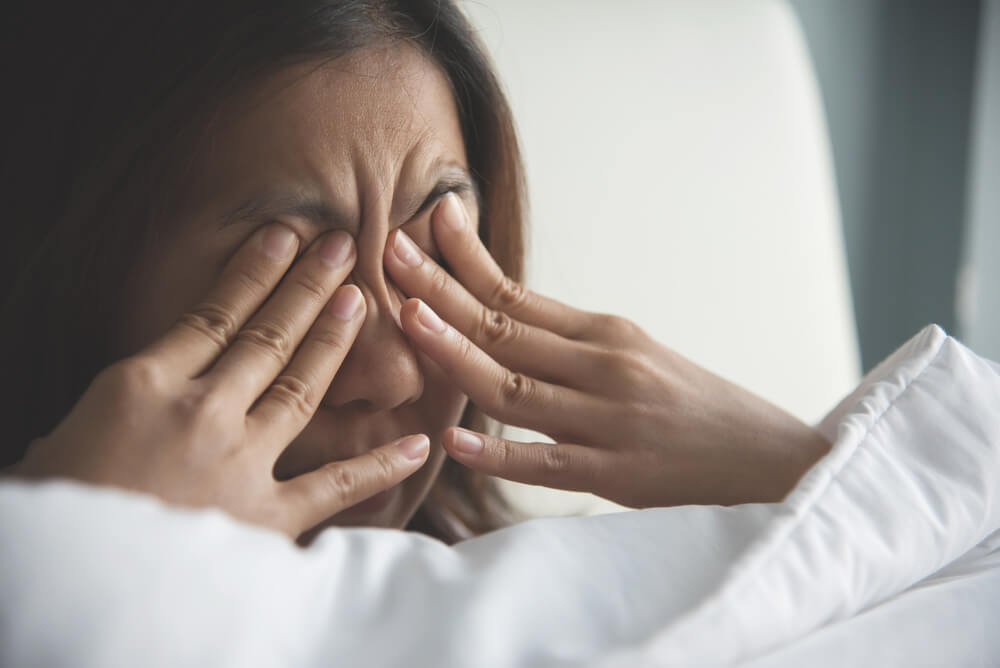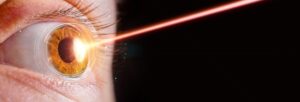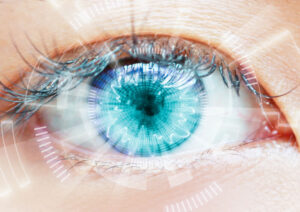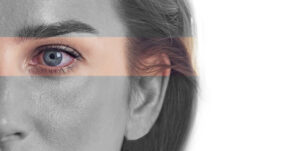
Most people associate bad eyesight with aging, genetic problems, or other health concerns. And that’s more or less true: when you ask the doctor about what causes bad eyesight, they will often point out that preexisting health concerns and age-relative problems are the most common causes of eyesight that are getting worse. Still, they will also mention that some of the reasons behind bad eyesight can be rooted in lifestyle choices and habits that can cause the eyesight to get worse.
The expert team at Diamond Vision has seen many cases of bad eyesight, and they have mastered eliminating age-related eyesight problems and refractive errors (like astigmatism, hyperopia, and myopia) with state-of-the-art treatments such as LASIK eye surgery.
On that note, the team has created a comprehensive list of what causes bad eyesight and ways you can improve your vision.
What Causes Bad Eyesight?
Why does vision get worse? As said before, deteriorating eyesight can be hereditary. Still, there are also quite a few habits that people form, which can ultimately lead to their eyesight getting worse. Here are the most common habits that can lead to diminished vision in the long run.
Not Making an Effort to Cut Back on Screen Time

If you’re asking, “Why does your vision get worse?” the main culprit might be the time you spend in front of screens. We are all guilty of spending too much time in front of our phones, laptops, and desktops, reading messages, working, or watching our favorite shows. The problem is, spending too much time watching these screens can lead to blurry vision, dry eyes, and other concerns.
And while you can avoid computer eye strain with protective eyewear for digital screens, the best way of protecting your eyesight from getting worse would be cutting back on screen time. Regularly monitoring the amount of time you speed in front of screens is an excellent way to introduce regular breaks, at least every twenty minutes, to give your eyes some rest. Look away, and focus on other objects in the distance. Also, blink slowly at least ten times to properly lubricate your tired eyes.
Taking a “5 second mini break” where you close your eyes consciously for 5 seconds at least every 15 or 20 minutes while on computer can reset your blink function and insure that your eyelids are coming together when you blink, which is critical to tear film movement and compression and proper oil flow from your eyelid oil glands. Believe it or not, many people on screens only partially blink and their eyelids never actually come together! Don’t let this be you or you are inviting a lifetime of dry eye to destroy your good vision.
Eating a Poor Diet
The foods you are eating can also impact your vision. A poor diet low in nutrients and vitamins can lead to diminished vision. As such, the question begs to be answered: can you improve your vision through diet? Studies indicate that there might be a link between diet, exercise, and good eyesight, but it’s best to include nutrient-dense foods from the beginning than trying to perform damage control later. That said, focus on eating eggs, seafood, leafy greens, and nuts, as they are good for your eyes.
Not Drinking Enough Water
If your water intake is low, the chances of dehydrating your eyes increase, leading to red, dry, and puffy eyes. And while there’s no specific number of cups of water you should drink, make sure to drink plenty of water (around 15.5 cups for men and 11.5 for women).
Rubbing Your Eyes Too Much Too Often
While this may seem harmless, it can lead to your eyesight getting worse if you are already dealing with problems. Take care not to rub your eyes aggressively or on a routine basis. Rubbing your eyes regularly can increase ocular inflammation and make dry eye and astigmatism worsen over time.
On top of that, experts say that keratoconus, or corneal thinning, may actually develop because of excessive rubbing.
Not Sleeping Enough
When people get less than six to eight hours of rest each night, their chances of developing eye strain and fatigue increase. Sleeping enough is crucial for the eyes to be lubricated continuously and get well-deserved rest.
Smoking
It’s well-documented that smoking can lead to a myriad of health problems, but not everyone knows that it can also lead to your eyesight getting worse. Heart and lung problems are the most significant concerns regarding smoking; vision loss is also a concern. Dry eye, glaucoma, cataracts, and age-related macular degeneration (AMD) can all worsen in the case of smokers. As a matter of fact, those who smoke have a higher chance of developing AMD and cataracts than those who don’t smoke.
Skipping Regular Eye Exams
Optometrists can establish the presence of vision problems and eye diseases in their earliest stages during routine eye exams. Avoiding these appointments may mean that a potential problem has the time to develop into something more serious, requiring more extensive methods to address and treat. In today’s fast-paced world, scheduling an appointment may seem like a chore, but it’s a clever investment in your eye health in the long haul.
Working in Dim Light for Long Periods
Just like looking at screens all day, working in dim lighting conditions can, too, cause strain and similar issues. Why would this lead to bad eyesight? Working in dim light means that your eyes will have to focus harder, which can lead to fatigue gaster.
On the other hand, overly bright light may also lead to problems. Because of that, you must create a workplace where your eyes can find relief while you’re working.
Not Wearing Adequate Sunlight Protection
Just like your skin, your eyeballs can also get sunburnt. The condition is called photokeratitis, but unfortunately, that’s not the only concern when not wearing sunglasses during overly sunny days. Avoiding good protective eyewear from the sun’s rays may also lead to macular degeneration, cataracts, and other vision-related issues.
Eye Problems and Health Concerns
As mentioned above, there are specific health conditions that can result in worsening eyesight and potential eye problems. As such, if you have any personal or family history with any of the health conditions listed below, consult your eye doctor about the preventative measures that can help you protect your eyesight in the future.
As such, these conditions may result in diminishing vision:
- Psoriasis
- Preeclampsia
- Diabetes
- Stroke
- Migraine
Is There a Genetic Component to Bad Eyesight?

Some conditions, like farsightedness and nearsightedness (hyperopia and myopia), can be genetically linked. If both parents have the same condition, there’s a higher chance that their child will develop the same refractive problem.
Color blindness or color vision deficiency, along with retinitis pigmentosa, are also considered genetically-linked vision problems. Also, age-related macular degeneration and glaucoma are believed to have the potential to be linked genetically. Patients are advised to be especially cautious with keeping their vision healthy if they have a family history of these disorders.
Can You Improve Your Eyesight?
Unfortunately, there’s no quick fix for improving your vision. Altering your diet and eating more lutein and vitamin A can help. Eating more sweet potatoes, spinach, Brussels sprouts, and carrots is a good start. Still, you won’t see dramatic changes overnight, but it can help with low-light and night vision over time.
Those seeking to improve their eyesight can always consider corrective eyewear such as contacts and glasses. Better yet, they can also find out whether they qualify for other vision correction methods, such as refractive surgery,
That said, schedule an appointment with our experts today to check your eyesight or learn more about our services and treatments.
Contact Us
If you have more questions about LASIK procedures, get in touch with us.
Related Blogs

Who Should Not Have Laser Eye Surgery
Laser eye surgery, commonly known as LASIK (Laser-Assisted In Situ Keratomileusis), has revolutionized the world of vision correction. It’s a procedure that has enabled millions

LASIK eye surgery: What is LASIK and how does it work?
What Is LASIK? Experts categorize LASIK as a refractive eye surgery in which lasers are used to correct vision problems. LASIK corrects several refractive errors,

Everything You Need To Know About The Lipiflow Treatment
LipiFlow is often referred to as a ground-breaking technology that is able to treat dry eye issues caused by meibomian gland dysfunction, or MGD. Experts
